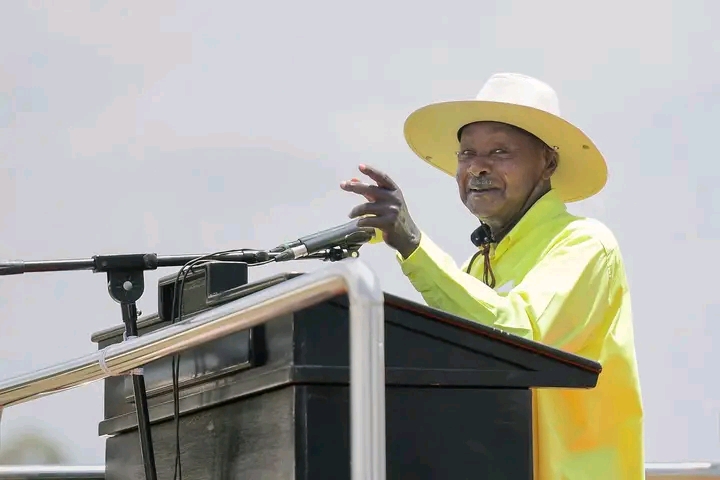President Yoweri Museveni has re-emphasized the seven pillars of the National Resistance Movement (NRM) manifesto, which include peace, development, wealth creation, job generation, service delivery, markets, and regional political federation as the foundation for Uganda’s continued progress and unity.
Addressing journalists in the Sebei sub-region districts of Kapchorwa, Kween, and Bukwo at Mbale State Lodge President Museveni said the NRM’s manifesto represents four decades of tangible contributions that have transformed Uganda from instability to a country of peace, development, and economic recovery.
The President explained that the current NRM manifesto does not revisit those historical divisions, but instead focuses on the practical achievements since 1986, number one being peace, which he attributed to the NRM’s ideological clarity that prioritizes action and productivity.
The second pillar is infrastructure and social services. He noted that the NRM government has invested heavily in expanding road networks, constructing schools, hospitals, and other social infrastructure, which have collectively improved Uganda’s economic base and connectivity.
He explained that the NRM government’s economic philosophy promotes household-level prosperity, urging every family to engage in productive enterprises that generate income.
The President underscored that wealth creation is the cornerstone of a self-sustaining economy, explaining that taxes and government revenues originate from citizens’ consumption and productivity.
Regarding job creation as the fourth point of the NRM manifesto, President Museveni cautioned that job opportunities cannot be created in isolation from wealth and production. He criticized the misconception that jobs are a government-provided resource, saying the public sector alone cannot absorb Uganda’s growing labor force.
He acknowledged ongoing challenges in healthcare and education but maintained that the government has built the necessary foundation to sustain progress in these sectors.
On the sixth pillar, the President addressed the issue of markets, stressing that Uganda’s production levels have now outgrown domestic consumption capacity. Economic integration within the East African Community (EAC) is essential to address the surplus production and ensure sustainable industrial growth.
The seventh and final pillar in the NRM manifesto, President Museveni said, is the pursuit of political federation in East Africa, aimed at creating a unified bloc capable of addressing regional economic and security challenges.
By Newsroom
12th Nov 2025
End

